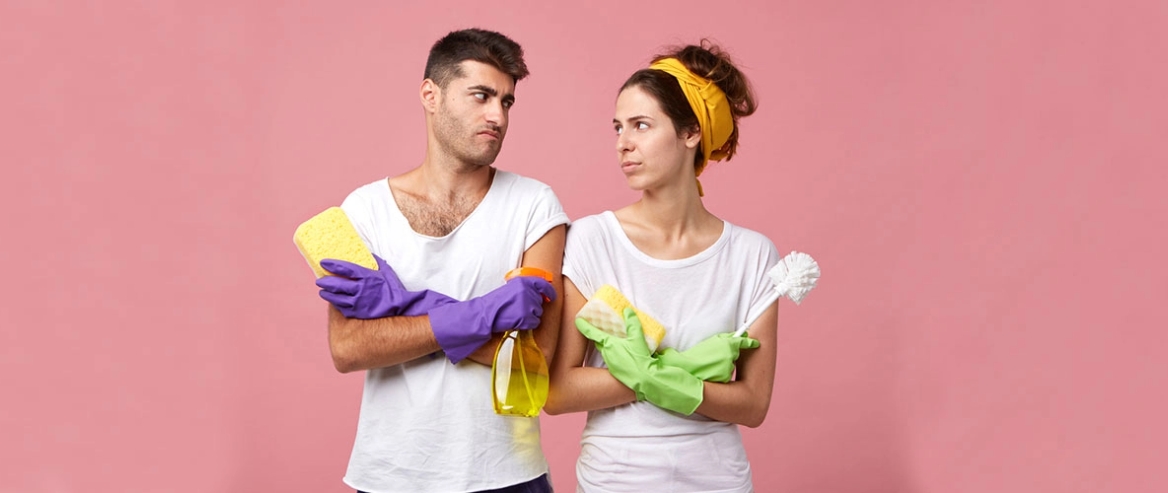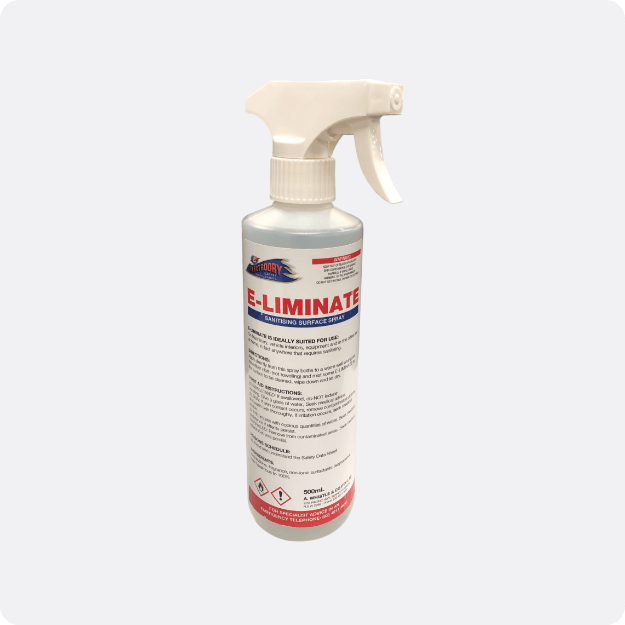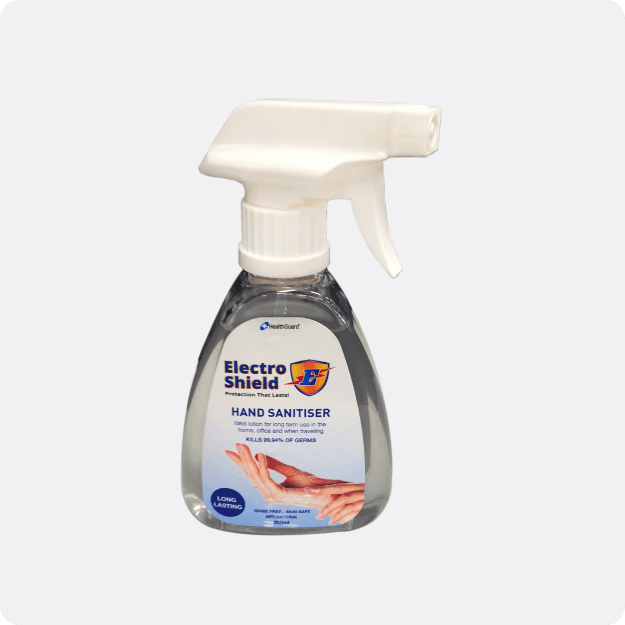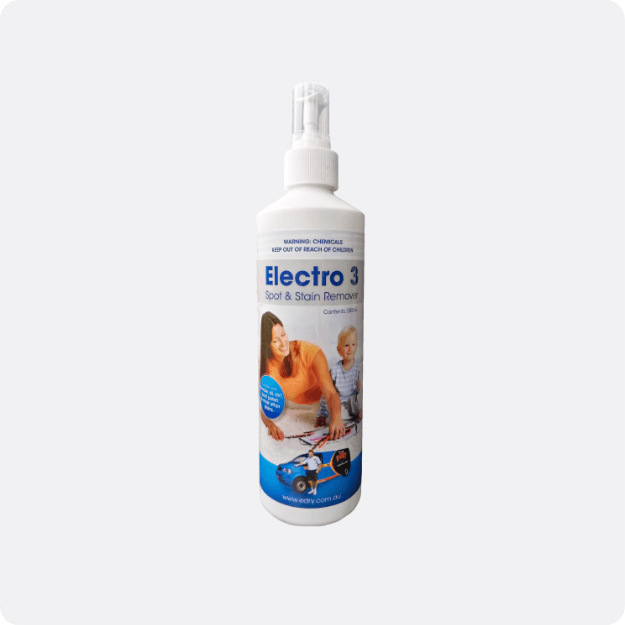Let’s be clear here. Cleaning is rarely enjoyable.
So, when you are doing it, you want to make sure you’re doing it most effectively and efficiently as possible, right?
Make the most of your cleaning routine by breaking these common cleaning mistakes.
The Don’ts of Cleaning Your Home
1
Hitting harsh products
You wouldn’t be blamed for thinking that using a more powerful product will get you quicker, better results.
However, harsher products could be damaging to your home and your health.
Most chores can be tackled effectively using natural DIY cleaning solutions that are safe and environmentally friendly. A bonus is that you’ll save money in the long run.
Not sure where to start? Most natural cleaning concoctions can be created using one or a mix of these ingredients: white vinegar, lemon, baking soda, and a few drops of essential oils.
Our natural cleaning articles are a great place to begin.
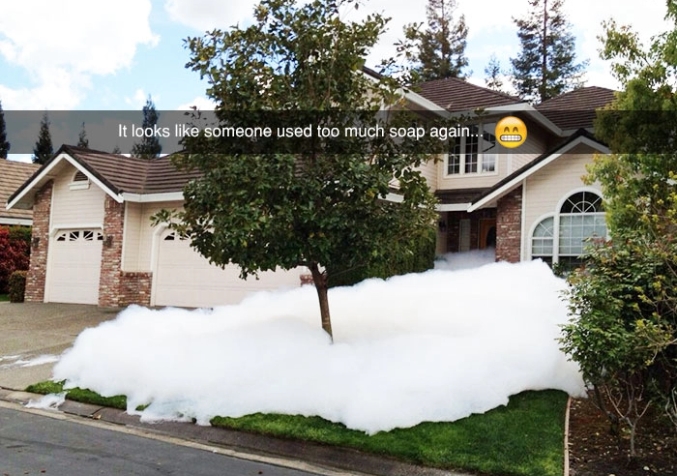
2
Using too much product
One of the most common cleaning mistakes is using excess cleaning product on a task. You’d be surprised how many people are guilty of this one.
Using too much product can mean that chemical residue is left behind, potentially leaving something grimier than it was, to begin with.
Think about wood floors. You wax them excessively, thinking that the waxier they are, the more they will shine. Wax build-up, however, can dull your floors – it’s one of the more common issues our timber floor technicians encounter.
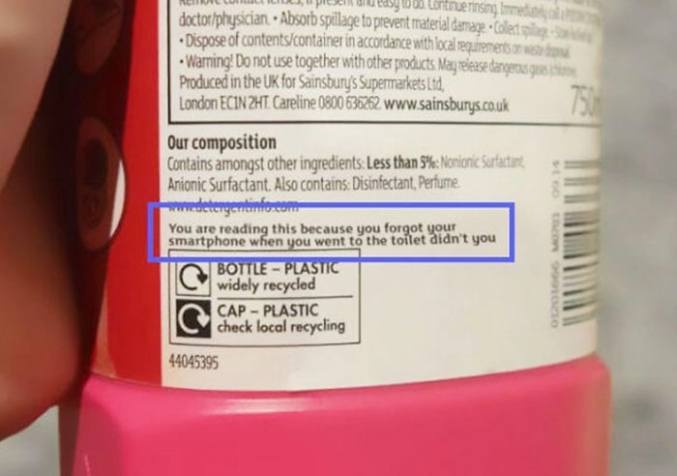
3
Ignoring product directions
This is one of the most important habits you need to break - ignoring the label on a cleaning product is a surefire way to make a cleaning fail.
Manufacturers put instructions on a cleaning label for these reasons: how to use, how much you need, and where it should be used. Application methods can vary so reading the label is always important.
For example, if it says to use a capful of detergent for a load of clothes, don’t throw in two or three, thinking it will be twice as effective. Just follow the instructions!
The same rules apply to cleaning tools: follow the manufacturer’s instructions to prevent electrocution, injury, or worse.
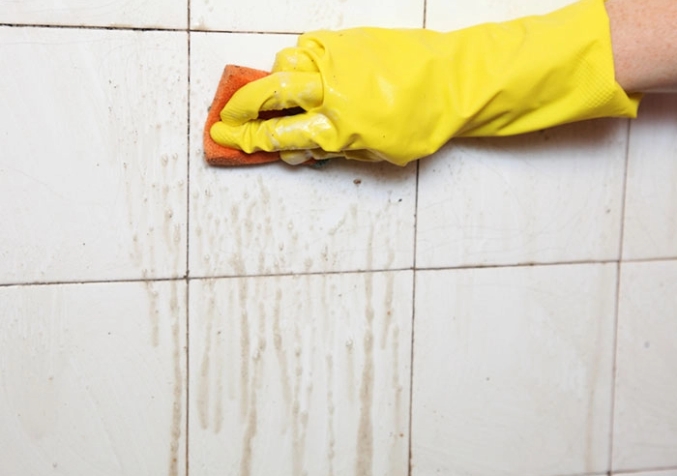
4
Dirty cleaning tools
Life gets busy, no doubt.
But cleaning with dirty equipment is potentially creating more work for yourself. Undertaking a simple task such as wiping a stove top with a dirty cloth could not only be ineffective, but you also risk cross-contamination by spreading germs and bacteria.
Clean your cleaning tools after using them, to eliminate dirt, germs, and bacteria, and be ready for the next cleaning job. Make sure that you clean them properly, however.
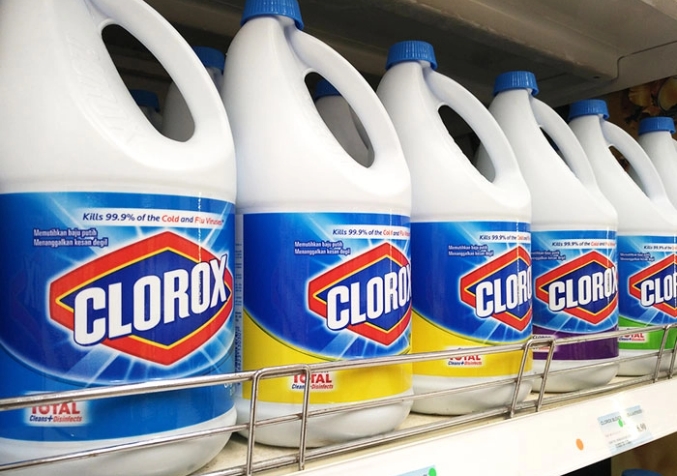
5
Relying on bleach
For many years, bleach has been a household staple, and used for a wide variety of purposes.
But in more recent years, it has been discovered that bleach isn't as good a cleaner as we once thought. Not only that, but bleach is intensely harsh, and can cause damage around the house. These reasons should be motivation enough to skip the bleach next time you begin your spring clean.
As mould cleaning experts, we advise against using bleach to treat mould at home - all it does is take the colour out of the bleach, not treat the problem itself.
Instead, check out advice on how to effectively treat mould, guaranteed to actually get results on smaller mould infestations.
Larger mould infestations need to be treated by mould cleaning professionals such as Electrodry.

6
Not closing the shower curtain
The bathroom is easily the toughest room in your house to clean.
Leaving your shower curtain open or not closing your shower door properly may mean that you’re making additional work for yourself. When shower curtains or doors are left open, excess moisture could reach into grout lines, causing mould and mildew.
Furthermore, if you leave a shower curtain open and folded, water and moisture get trapped in the folds, and over time, will also develop mould and mildew, which can then spread in the bathroom.
If you have a non-slip shower mat, hang it up to dry.
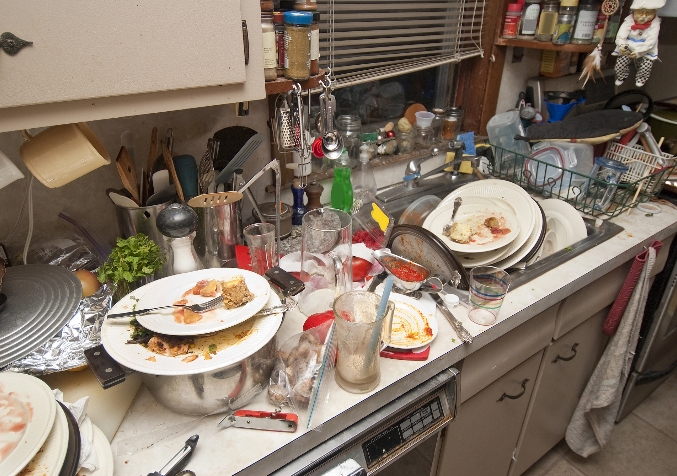
7
Letting the dishes pile up
It’s hard to tackle a pile of dishes, but the longer you leave it, the harder it will become.
Food grime only hardens over time, so the dishes will be harder to clean the longer they sit there. Hand wash dishes as soon as you can and avoid the pileup. A few minutes here and there is a lot easier than a stack of messy dishes.
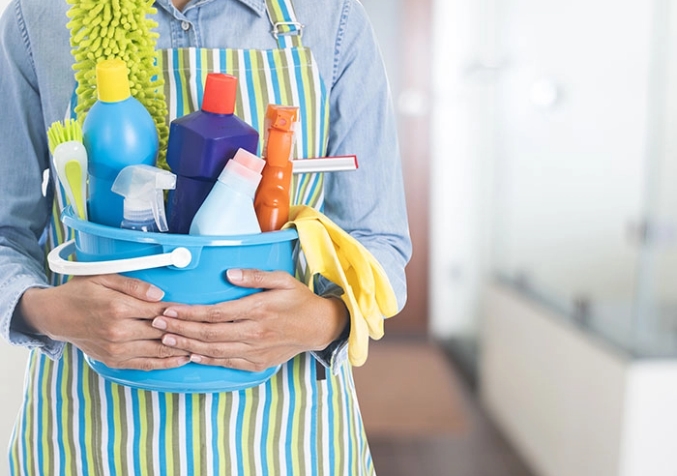
8
Not being organised with your cleaning tools and products
Keep your tools close by so that when you start cleaning, everything you need is ready to go.
You should also be sure to replenish products if they are running out. If something is running low, pop it on your grocery list so that you have everything you need the next time you decide to start a clean.
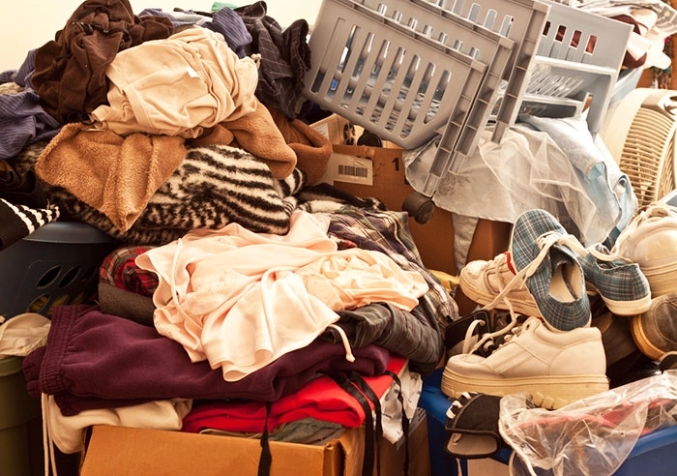
9
Hoarding unnecessary stuff
Raise your hand, I know you’re guilty of this also.
Decluttering is good for the house, and good for the soul as well.
Whether it be old souvenirs from a wedding you attended years ago or old issues of magazines you have lying around, these things can add up quickly and take up considerable space in our homes.
Take the time to go through the entire house and remember to be firm in disposing of items you don’t use or have any need of anymore.
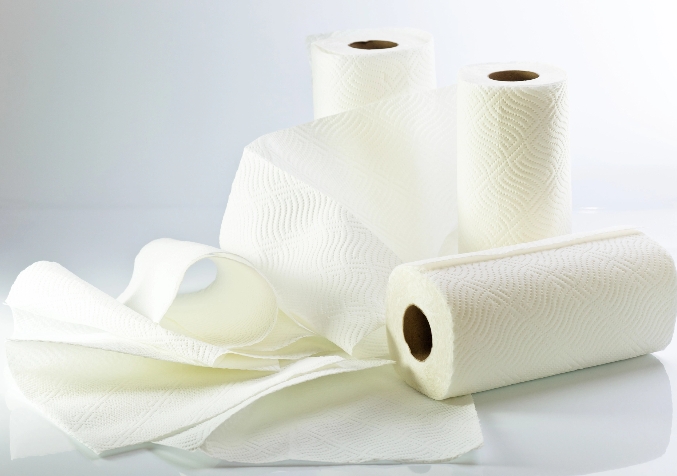
10
Using too much paper towel
Paper towels are very handy in the kitchen but using too many can add quite a chunk to your household budget. Instead, use a kitchen cloth where you can, and use old towels or rags to clean floor spills.
Repurposing old clothes and cloths is better for the environment as well.
